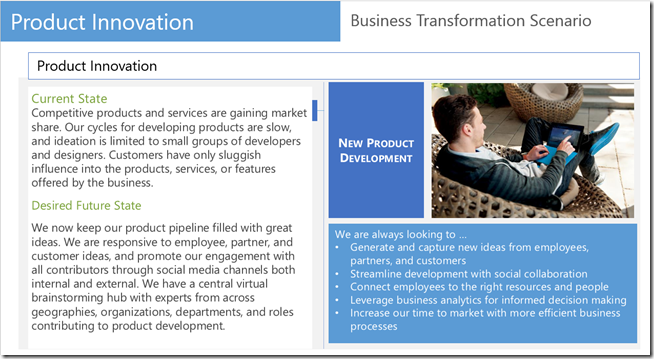The Sweet Spot of Customer Demand Meets Microsoft Supply
Here’s a simple visual that I whiteboard when I lead workshops for business transformation.
The Sweet Spot is where customer “demand” meets Microsoft “supply.”
I’m not a fan of product pushers or product pushing. I’m a fan of creating “pull.”
In order for customers to pull-through any product, platform, or service, you need to know the customer’s pains, needs, and desired outcomes. Without customer empathy, you’re not relevant.
This is a simple visual, but a powerful one.
When you have good representation of the voice of the customer, you can really identity problems worth solving. It always comes down to pains, needs, opportunities, and desired outcomes. In short, I always just say pains, needs, and desired outcomes so that people can remember it easily.
To make it real, we use scenarios to tell a simple story of a customer’s pain, needs, and desired outcomes. We use our friends in the field working with customers to give us real stories of real pain.
Here is an example Scenario Narrative where a company is struggling in creating products that its customers care about …
As you can see, the Current State is a pretty good story of pain, that a lot of business leaders and product owners can identify with. For some, it’s all too real, because it is their story and they can see themselves in it.
In the Desired Future State, it’s a pretty good story of what success would look like. It paints a pretty simple picture of what would be an ideal scenario …. a future possibility.
Here is an example of a Solution Storyboard, where we paint a simple picture of that Desired Future State, or more precisely, a Future Capability Vision. It’s this Future Capability Vision that shows how, with the right capabilities, the customer can address their pains, needs, and desired outcomes.
The beauty of this approach is that it’s product and technology agnostic. It’s all about building capabilities.
From there, with a good understanding of the pains, needs, and desired outcomes, it’s super easy to overlay relevant products, technologies, consulting services, etc.
And then, rather than trying to do a product “push”, it becomes a product “pull” because it connects with customers in a very deep, very real, very relevant way.
Think “pull” not “push.”
You Might Also Like
Drive Business Transformation by Reenvisioning Operations
Drive Business Transformation by Reenvisioning Your Customer Experience
Dual-Speed IT Drives Business Transformation and Improves IT-Business Relationships


